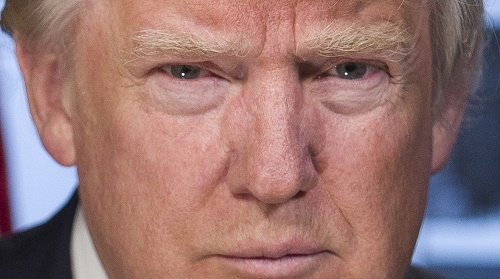
By Roger J Kerr

The inter-connection of politics and international trade is providing both positive and negative influences on the Kiwi dollar’s value at this time.
The NZ Government will sign up to the Comprehensive and Progressive Trans-Pacific Partnership agreement on free trade with 10 other countries in Chile later this month.
Greater export trade access into major economies like Japan, Canada and Mexico is a major plus and boost for the NZ economy (and thus currency).
There was some risk when the Labour Coalition Government came into power in October last year that the importance of freer global trade to NZ would be undermined by trade protectionist antics by the Greens and NZ First political partners. Thankfully, the Prime Minister and Trade Minister honoured our earlier commitments in this area and a potential major negative for the NZ dollar was averted.
When US President Donald Trump came into power in November 2016, he was expected to introduce anti-free-trade protectionist policies such as border taxes, as he campaigned hard in this area saying that foreigners were taking American jobs. Until recently, there were no policy initiatives on tariffs and border taxes as President Trump concentrated on repealing Obamacare, reducing regulation for business and corporate tax reductions.
The previous silence on trade protectionism was interpreted by many as some sanity coming into the economic advice to the President. However, that was too much to expect with Trump tweets late last week that the US is introducing a 25% tariff on steel imports and a 10% tariff in aluminium imports (all the in name of national security!).
The US President is inviting a trade war with its trading partners, as retaliatory measures seem inevitable.
Canada and Europe are by far the largest steel exporters to the US and they will not be happy.
Whilst the US President erroneously sees US trade deficits with other countries as “bad” and “losing money”, the real losers from these Draconian economic policy shifts will be US households.
US manufacturers will pay higher prices for imported or locally manufactured steel/aluminium and will pass this through into their selling prices. Higher consumer inflation is the result.
US manufacturers who use steel and aluminium will become less competitive in global markets and potentially lay-off workers.
It is difficult to see aluminium smelters in the Tennessee Valley, that were closed/mothballed forty years ago as they were uneconomic, suddenly springing to life and being financially viable.
It would be a con to the workers if they started up again.
The spectre of global trade wars is, of course, extremely negative for economies and currencies of countries who are highly dependent on international trade i.e. Canada, Australia and New Zealand.
Potential lower global GDP growth as a result is also negative for commodities and commodity currencies such as ours.
After moving back upwards to 0.7275 against the USD mid last week, the Kiwi dollar was immediately sold back down to 0.7220 on the Trump tariff tweets. Expect to see further NZ dollar weakness if the global trade wars escalate over coming weeks/months.
The currency that was the major beneficiary of the trade war uncertainty was the Japanese Yen, strengthening to 105.70 against the USD. As a result, the JPY/NZD cross-rate has depreciated to 76.50, a very good spot entry point for local exporters in Yen to hedge long-term currency risk.
Political outcomes in Europe may prove to be both positive and negative for the Euro’s exchange rate value with a coalition government in Germany finally being agreed (EUR positive). However, should far-right parties hold the sway in Italian election results, the Euro would be expected to weaken against the USD.
Further NZ dollar depreciation to 0.7100 is a greater probability than renewed strength in the current economic and financial market environment.
There is absolutely no attraction for foreign investors or currency players to park their funds in New Zealand as an alternative to the USD anymore as our interest rates move below those of the US.
Our commodity prices are already high and further significant increases seem unlikely from here. US economic data continues to print on the strong side (e.g. manufacturing at 14-year highs), therefore further US dollar weakness on global FX markets also seems unlikely as US interest rates increase and others do not.
Daily exchange rates
Select chart tabs
Roger J Kerr contracts to PwC in the treasury advisory area. He specialises in fixed interest securities and is a commentator on economics and markets.
1 Comments
I strongly suspect that this is just a negotiation tactic, laying the foundation for something, or rather, getting something without actually having to give up something. If, for example, Canada decides they don't like the idea of a potential hit to their exports, they'll likely negotiate or ask what they can do to be exempt. The US will get something essentially for doing nothing except not following through on a threat.
As horrible a human as he can appear to be, Trump ain't no idiot.
Surprised all of the analysis I've read to date has been nothing but rhetorical "protectionism is bad, blah, blah, blah". I guess this just shows that most economist or economic commentators have no real world business experience.

We welcome your comments below. If you are not already registered, please register to comment
Remember we welcome robust, respectful and insightful debate. We don't welcome abusive or defamatory comments and will de-register those repeatedly making such comments. Our current comment policy is here.